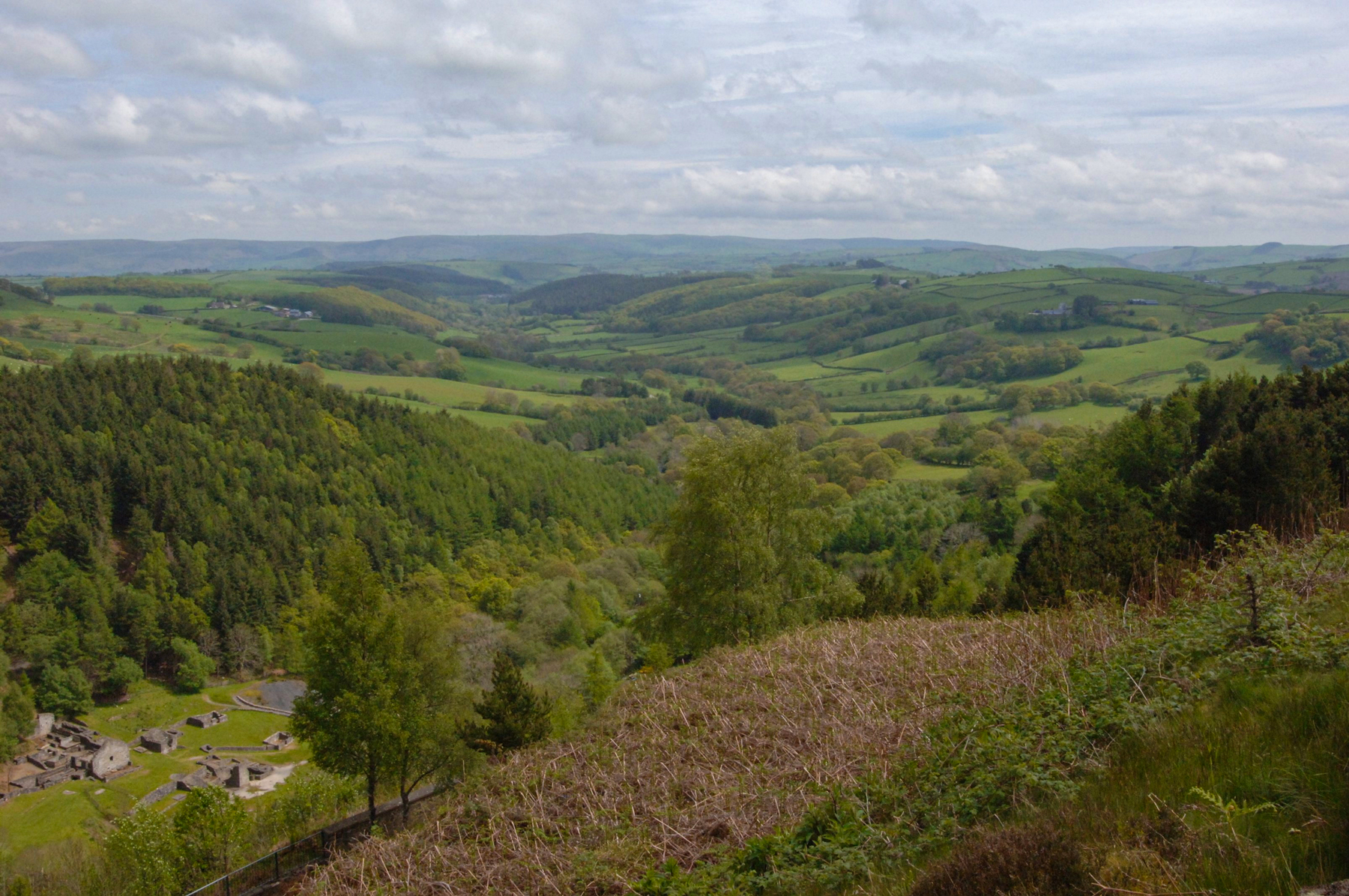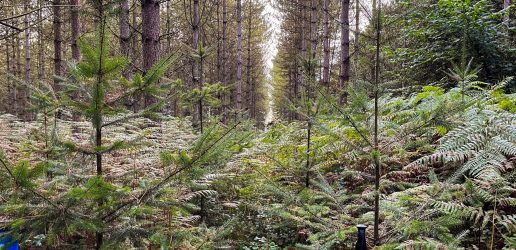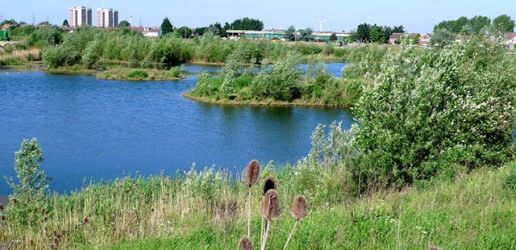A new research programme to identify a shortlist of productive tree species, suited to both current and predicted future climatic conditions in Wales, has been given the go ahead.
Forest Research, Great Britain’s leading forestry research agency, has been commissioned by Welsh Government to develop a list of tree species which will help strengthen the resilience, productivity and long-term sustainability of Welsh woodlands. Woodknowledge Wales, Bangor University and Edinburgh Napier University will work with Forest Research to develop the shortlist.

The need for such a shortlist has been highlighted by the Welsh Government’s “Making wood work for Wales” timber industrial strategy, and similar programmes across the UK. Scotland recently completed its own shortlisting project, funded by Scottish Forestry, and parallel work is now underway in England, funded by Defra.
The Welsh project will run alongside the work in England, creating significant opportunities for collaboration, alignment and shared learning across the three nations in areas such as tree breeding, plant and seed supply, and silvicultural research. A key focus of the work in Wales will be on research into wood properties and market development.
Tree species prioritisation touches the core of business models, commercial strategies, and professional and cultural beliefs. Making a shortlist of tree species for Wales will be a team effort. People from all parts of the forestry sector will be invited to explore ideas and opportunities for growing, processing, and using home-grown timber in the future with the goal of building a strong and resilient forest industry.
Species on the Welsh shortlist will be those considered suitable for deployment now, while an additional reserve list will identify promising species that require further research before operational use.
Efforts will be coordinated at a UK level by the UK Forest Genetic Resources (UKFGR) Group, ensuring coherence, consistency, and a joined-up approach to species diversification.
David Edwards, lead researcher on the project at Forest Research said, “The forestry sector has long relied on a narrow range of productive tree species. As climate change accelerates and threats from pests and diseases continue to rise, the need to diversify tree species in Wales has become increasingly urgent. Developing agreed regionally focused shortlists of suitable species, in collaboration with experts and stakeholders across the forestry sector, will help strengthen the resilience, productivity, and long-term sustainability of Welsh and UK woodlands.”
David added, “Collectively, the initiatives across Wales, England, and Scotland represent one of the most comprehensive and coordinated evidence gathering exercises ever undertaken for commercial tree species selection in the UK. This will support and inform forestry diversification programmes and will deliver an evidence-based, nationally aligned foundation that the entire forestry sector can build upon.”
This will support and inform forestry diversification programmes and will deliver an evidence-based, nationally aligned foundation that the entire forestry sector can build upon.
Deputy First Minister Huw Irranca-Davies said: “Forests need to be healthy and resilient if they are to maintain and enhance their capability to produce timber, provide high-quality habitats for wildlife and continue to deliver for society. We need to future-proof our forests, suitably adapting to climate change, introducing greater diversity and appropriate species mixes for future resilience. The launch of this project is an important step to enable forward planning, vital given the relatively long-term cycles involved in ensuring Wales has access to genetically diverse and climate-appropriate stock to plant sustainable forests for future generations.”
Gary Newman, CEO Woodknowledge Wales, commented, “We are delighted to be working closely with Forest Research, scientists at Bangor University and Edinburgh Napier University and a wide range of industry stakeholders in Wales to ensure we can make best use of a wider range of tree species. We consider this project as an enabler for future collaboration focused upon increasing resilience in the forest and within its associated value chains.”
The purpose of the shortlists is to support strategic decision-making across the sector. The shortlists are not intended to prescribe species choices at the operational or site level, where land managers will continue to consider local conditions, objectives, and preferences in line with the UK Forestry Standard and other guidance.
Beyond identifying species shortlists, the assessment framework developed through these projects will offer lasting value as a tool for strategic planning, operational decisions, knowledge exchange, education, and workforce training as well as highlighting gaps in existing evidence that should be prioritised for future research.
Recent News
View All news
Underplanting extends range of coniferous tree species to diversify future commercial timber production
New Forest Research published in Forest Ecology and Management shows that underplanting could widen the range of conifers suitable for future UK timber production.

New land regeneration resources for creating green spaces on previously used land now available
The new resources bring together the latest learnings on land regeneration and climate change, and optimal soil thickness for planting on previously used land.

New national survey launched to strengthen plant pest and disease detection across UK horticulture
UK horticulture and landscaping businesses invited to take part in survey to strengthen non-native plant pest and disease detection and reporting.

Underplanting extends range of coniferous tree species to diversify future commercial timber production
New Forest Research published in Forest Ecology and Management shows that underplanting could widen the range of conifers suitable for future UK timber production.

New land regeneration resources for creating green spaces on previously used land now available
The new resources bring together the latest learnings on land regeneration and climate change, and optimal soil thickness for planting on previously used land.

New national survey launched to strengthen plant pest and disease detection across UK horticulture
UK horticulture and landscaping businesses invited to take part in survey to strengthen non-native plant pest and disease detection and reporting.
